Today's session is the result of a random selection, digging around in the nether-regions of my shelves, attempting to find something new to drink. I found two teas, nestled away in the depths, which turned out to be extremely complementary.
Allow me to explain.
Bannacha is one of those fantastic outfits that sells small quantities of very robust pu'ercha at exceptionally sociable prices. It reminds me of tea-vendors of old, where the inventories did not stretch on for 97 pages, and where the prices permitted the possibility of finding a real bargain. No matter what your relationship to shopping, everyone likes a bargain.
This Bulangshan cake does not appear anywhere on the web-site, and I wonder if it ever did. It is entirely possible that, due to its lack of markings, this is a personal production. The enigma appeals to me.
Edit: this "2010 Bulang" is the 2012 Guanzizai "Xiangrugu". William of Bannacha puts the bitterness down to the contribution from Laoman'e.
The world is separated into two kinds of people: (i) those who like Bulang, and (ii) those who are
incorrect.
As I settle down to enjoy a punch-up with that which, at first appearances, looks to be a rather pretty cake, I realise that I must blow a thin layer of dust from my teatray in order to get the session started. Surely this is an indication that something is amiss - when one's teatray has gathered dust.
The hotplate beneath the tetsubin begins to exude the rather unsettling scent of cooking dust.
Bulang. You know what to expect by now. The scent and flavour are both pleasantly sweet and yet, these first impressions remind us that we must steel ourselves for the finish. And there it is: a solid core of bitterness that is rather appealing.
I must confess to being not one of those people who likes bitterness for the sake of it. Indeed, there are plenty of "bad" kuwei that might come about via pesticides and other unseemly additions. However, there is a certain strength and backbone that a tea would be less interesting without. It just so happens that many Bulang cakes have a great deal of it, and I appreciate the challenge. Rather like a meal with huajiao [flower pepper], a good cake with decent kuwei can be plenty of fun. This kuwei needs to be the variety that is associated with good leaves, and not the brassy green unpleasantness that derives from taidicha [plantation tea]. It is quite straightforward to tell the difference, though, after a few battles.
This is a touch "soapy", a touch numbing, rather "tingling", and is deeply soothing. The huigan is substantial and rewarding. I wrote in my diary, "It is the taste of freedom."
Kenny is a sterling dude that lives in Hong Kong, and has great taste in tea. Certainly, the samples that he has sent to me in the past have been entirely excellent. Therefore, it is with some degree of excitement that I found the sample bag pictured above, apparently untouched.
Jingmeitang is the brand produced by Huang Chuanfang, a Taiwanese teachap of some repute. Kenny notes that this was pressed by the ever-obliging Changtai; it seems that many of the private pressings that Kenny has sent to me over the years, from friends or otherwise, have come via the equipment of Changtai factory.
The dark maocha comprises larger fragments of medium-sized leaves, which have a "traditional" feeling to them, far from the modern trend towards almost-untouched, entirely whole leaves.
This tea is now seven years old, and, despite languishing in a plastic bag at chez moi, has acquired some older touches. Its soup is orange solidity, and it falls into that particular genre of tea (usually Yiwu) which I tend to call "wet straw". This is not a bad thing. Likewise, it has an overtone of something that could only be described as "fish", and yet which is much more pleasant than you might otherwise suspect.
As it wakes from its dormancy, the Jingmeitang builds up a deep sweetness. The breath is cooled, the tongue lightly numbed. Everything is in accordance. The density of its sweetness, rolling into a solid kuwei, makes it most enjoyable.
Kudos indeed to Mr. Huang, and thanks to Bannacha and Kenny for, at some point in the past, sending me these delightful samples that worked so well together: the beast and the beauty, respectively, you might say.
Addendum
April, 2013
The leaves are of medium size, with a decent scent of mineral, humid sweetness.
Orange in soup, and sharp-mineral in character, this is the epitome of hot-and-humid storage. Unlike some, it has a strong cooling sensation to accompany its rich, malty character.
The dark-red cake reminds me of the differences in storage between England and the south-China region. The humid darkness of this latter genre is distinct from the not-wet, not-dry storage that our cakes appear to be experiencing here.

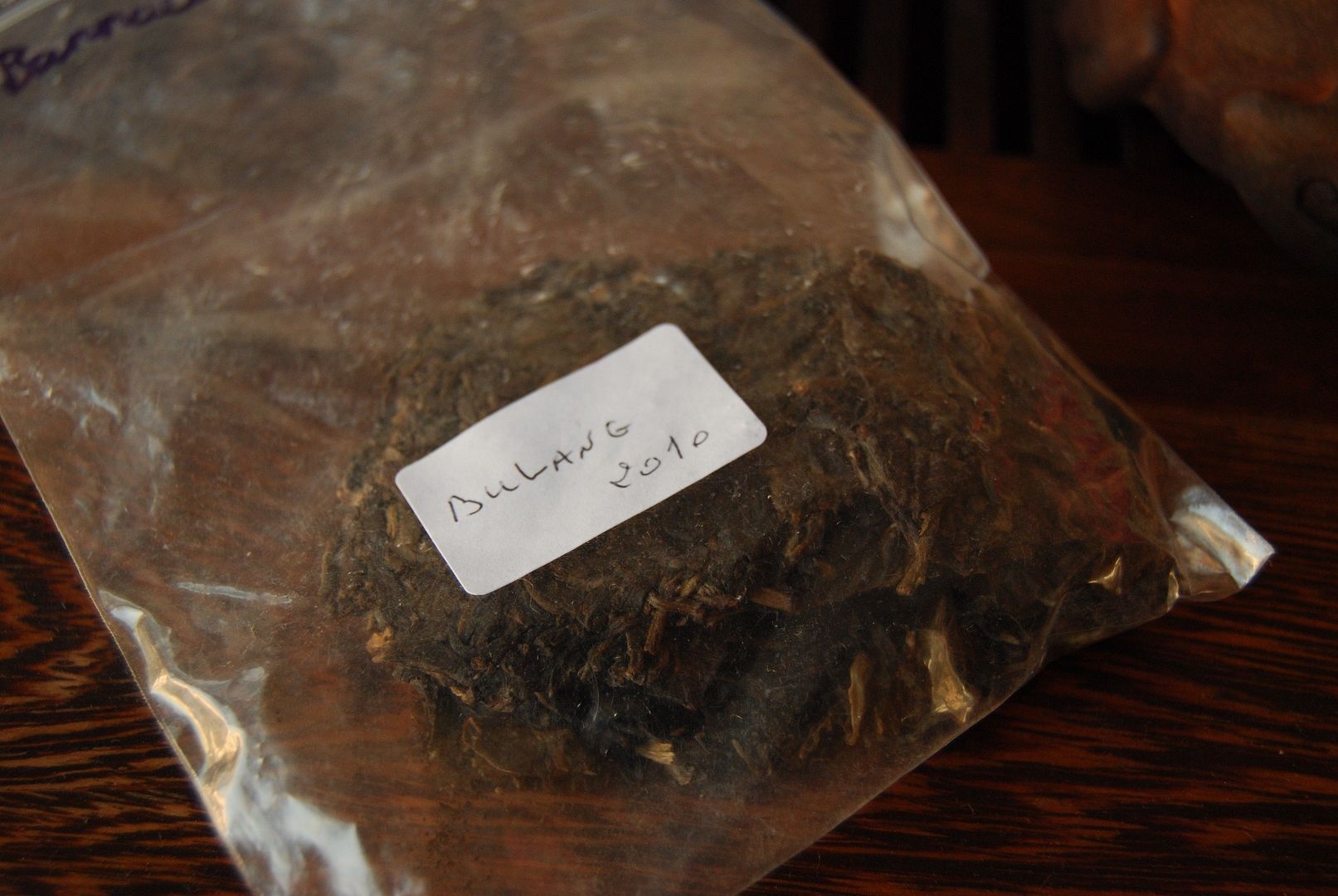
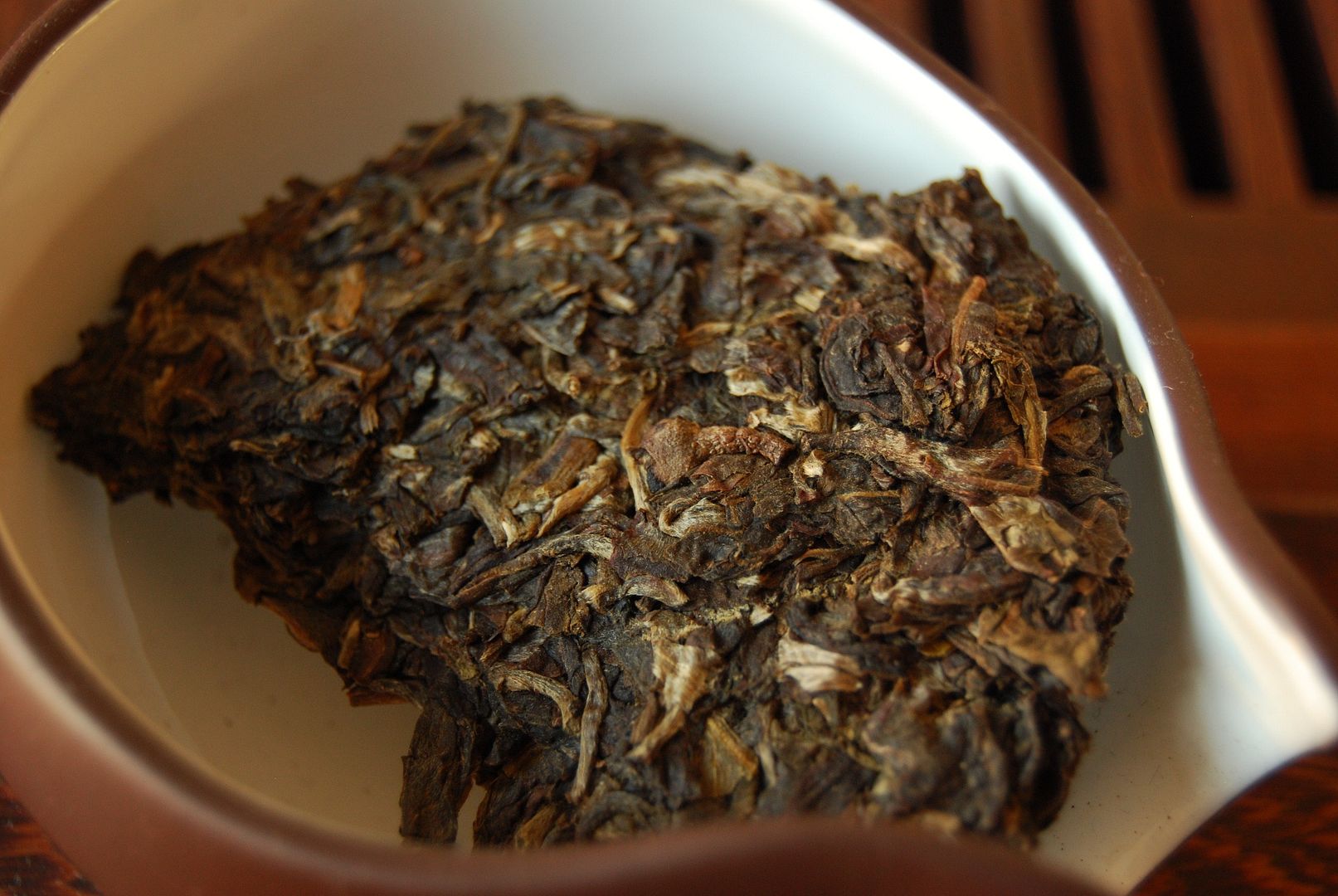
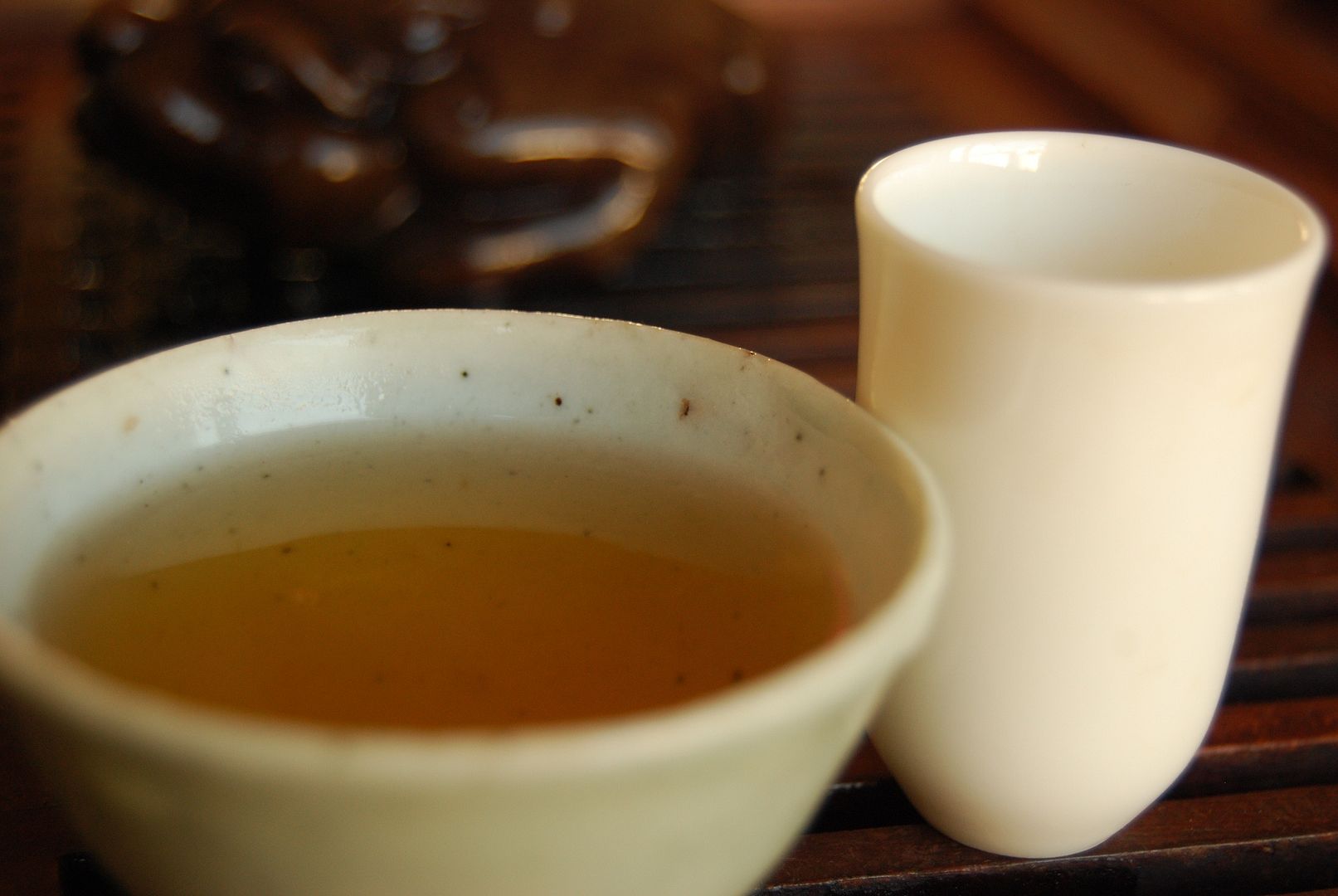
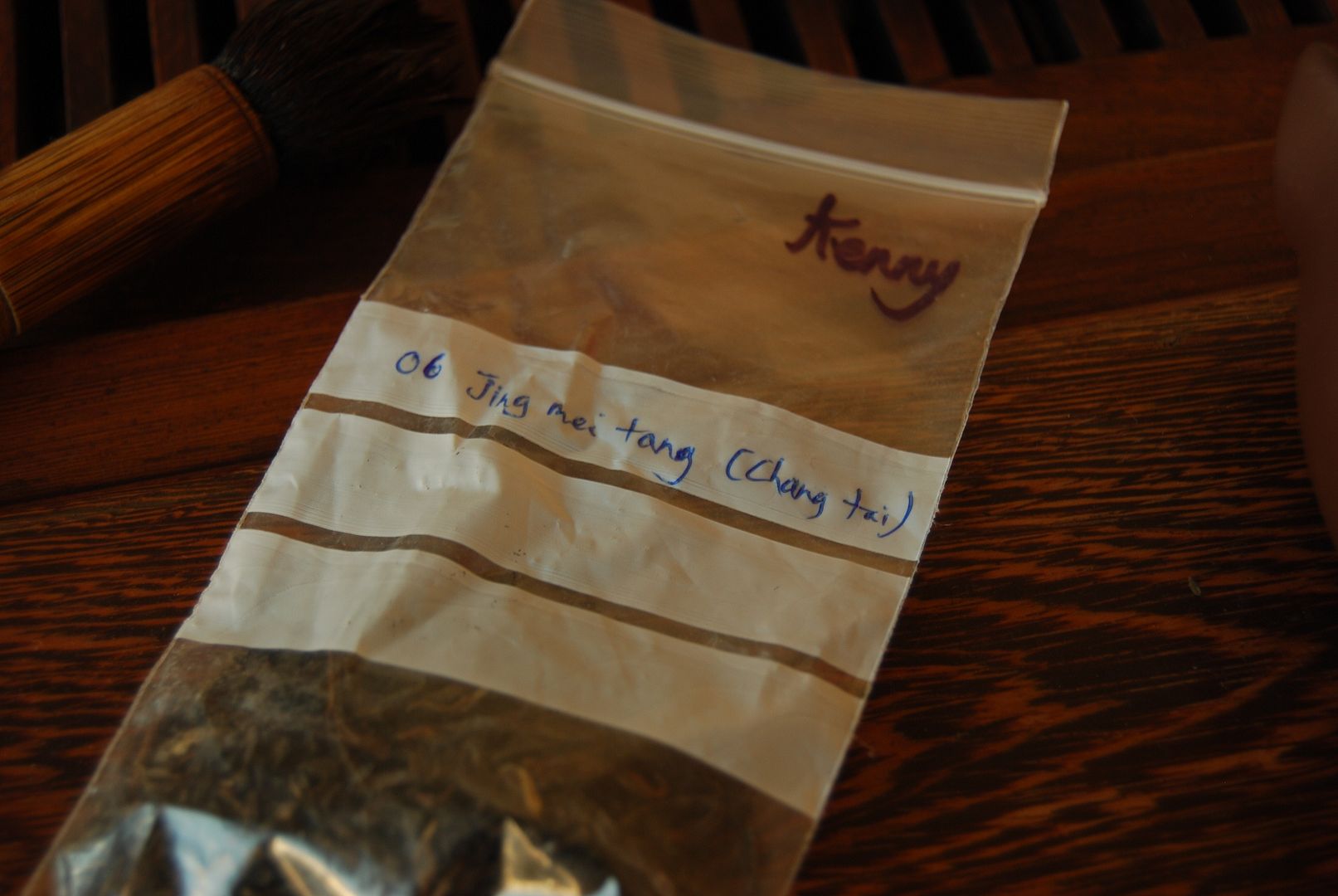
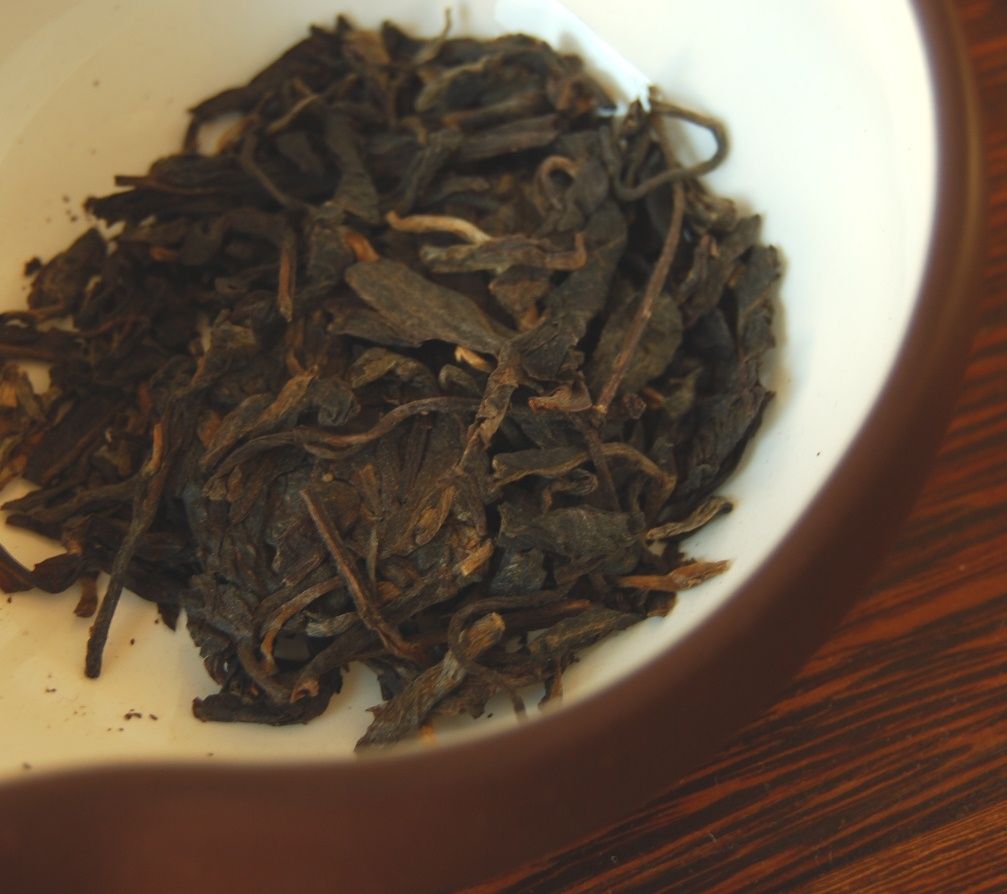
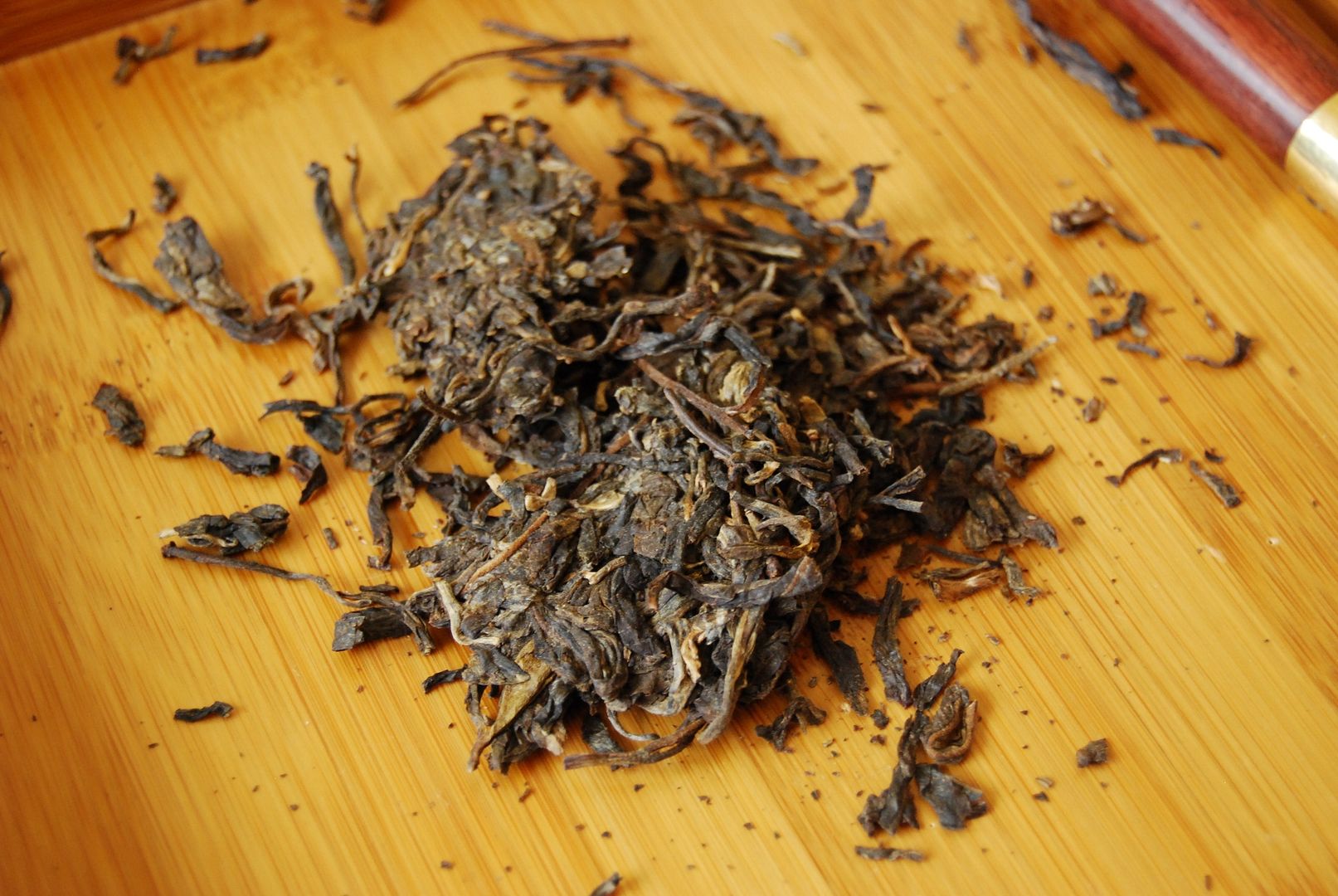
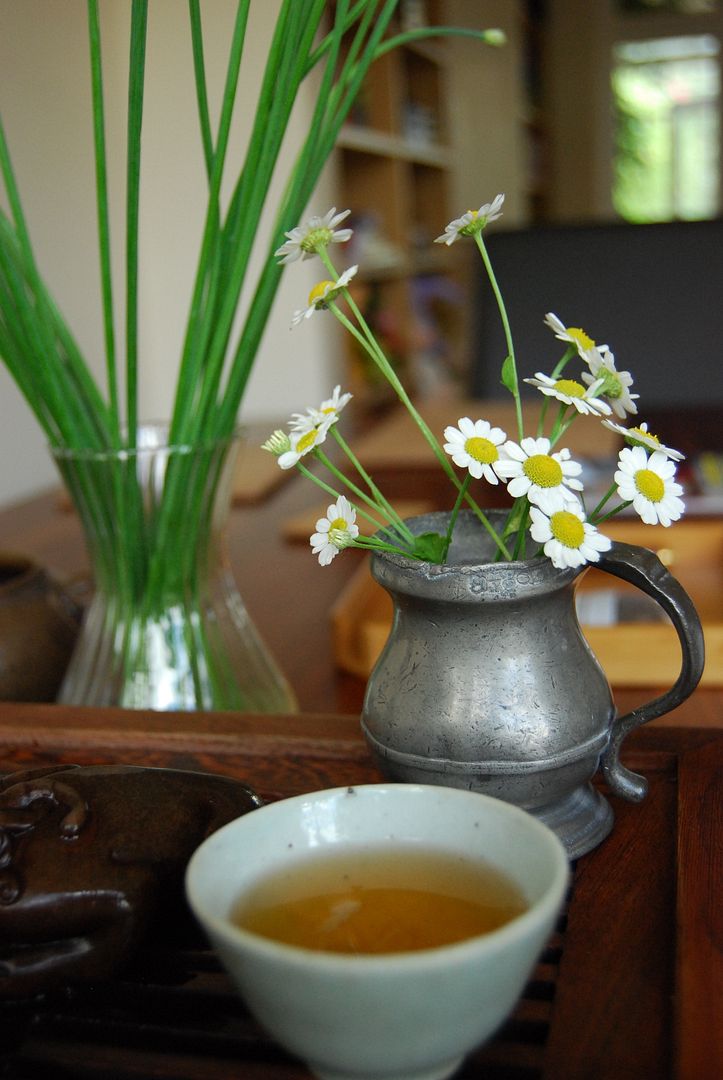
4 comments:
Dear Hobbes,
first of all many thanks for your countless interesting reviews!
It is thanks to (or dare I say because of) your enticing descriptions that I've become a shengpu addict ;-)
I have a question:
in June I will visit my brother in Singapore and I was wondering if you or your friend Keng could give me any recommendations concerning good tearooms and tea shops there.
I'm not only interested in pu'erh; my resistance is equally futile against quality Oolong, green teas, Darjeeling, etc...
Any information would be highly appreciated.
Gregory
Antwerp
P.S.: what a coincidence that you wrote about Bannacha; I've just ordered the "2012 Autumn Jingmai Shengtai" and I can't wait to try it.
Dear Hobbes,
Bannacha had two Bulang for sale, as far as I remember. It was a GZZ Bulang 2009 and some other Bulang which was priced a little higher - I believe what you have is the other Bulang.
I have a cake of the GZZ Bulang 2009 which was not too complex, not too strong in character like your typical Bulang, but nice for an everyday fix of Bulang.
I think I need to go through my samples and see if I can dig out a sample of that 2010 Bulang.
Regards,
Jan
Dear Hobbes, This sounds like a wonderful tea. I too also look forward to your writing to further feed my knowledge of Shengpu. Bannacha also has a lovely 2012 Jinggu which is superb.
All the Best,
Charles
Dear Gregory,
I'm afraid I'm rather clueless when it comes to recommendations about Singapore - in fact, if you find any, do please let me know, for my own use if I eventually get there!
Dear Jan,
Thanks for the extra details; William of Bannacha just confirmed that the cake was the 2012 Guanzizai "Xiangrugu", which appears to be not for sale.
Dear Charles,
Thanks for the tip - I'll see if I can get some of that Jinggu. :)
Toodlepip,
Hobbes
Post a Comment